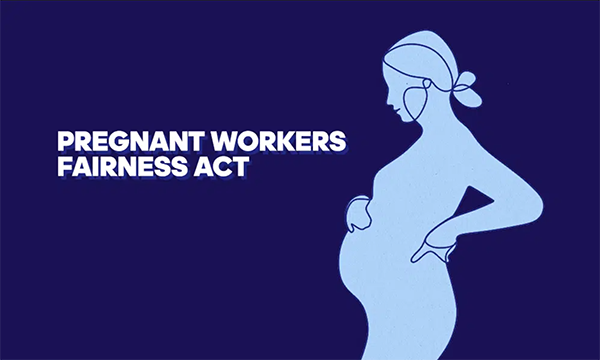EEOC clarifies rights for Pregnant Workers
On April 15 the U.S. Equal Employment Opportunity Commission (EEOC) issued final regulations for implementing the Pregnant Workers Fairness Act (PWFA), a law that that went into effect on June 27, 2023. The PWFA requires employers to provide reasonable accommodations for known limitations related to pregnancy, childbirth or related medical conditions unless the accommodation would cause the employer an undue hardship. The law applies to employers with 15 or more employees.

The EEOC aimed to clarify definitions and limitations of the law. The PWFA only provides accommodations to qualified employees with limitations related to, affected by or arising out of pregnancy, childbirth or related medical conditions. The EEOC noted that whether a condition constitutes “pregnancy, childbirth, or related medical conditions” will be guided by existing Title VII precedent. Among other subjects, the regulations cover lactation support and other accommodations for expectant workers, as well as accommodations for workers seeking an abortion.
The Commission noted that it had received comments objecting to the inclusion of abortion from the definition of “pregnancy, childbirth, or related medical conditions”, but also noted that many commentators urged inclusion because abortion is a necessary part of health care. Employers or health care providers are not required to provide or pay for abortions or any travel-related expenses. The abortion accommodations covered under PWFA would typically include allowing time off for the procedure and recovery, but the EEOC said that it would consider employers’ religious objections to providing abortion accommodations on a case-by-case basis.
The regulations include examples of reasonable accommodations, such as:
• A stool to sit on while working;
• Time off for health care appointment;
• Temporary reassignment;
• Temporary suspension of certain job duties;
• Telework or time off to recover from childbirth or a miscarriage;
• Additional breaks to drink water, eat or use the restroom;
• Closer parking;
• Additional break time to use the bathroom, eat and rest;
• Leave to recover from childbirth; and
• Reassignment from activities that are strenuous or involve exposure to compounds that are not safe for pregnancy.
The statute and regulations will likely be subject to court challenges. For example, on February 27, a federal district court in Texas ruled that Congress lacked the required quorum to implement the PWFA, holding that the EEOC cannot enforce the law against the state. The court found that Congress violated the Constitution when it passed the PWFA.
Note also that the PWFA does not replace federal, state or local laws that are more protective of employees impacted by pregnancy, childbirth or related medical conditions.
PLDR Law is here to help you navigate the changing employment landscape. We offer consultations and counsel options to support your Human Resources priorities and your Business goals. Contact us today!
